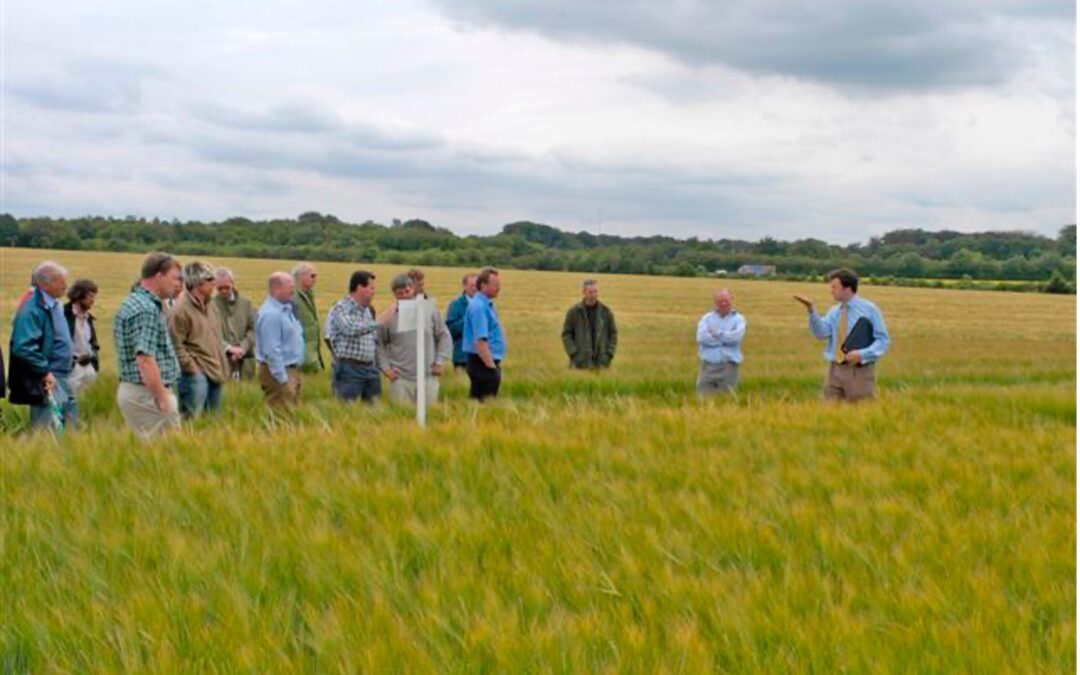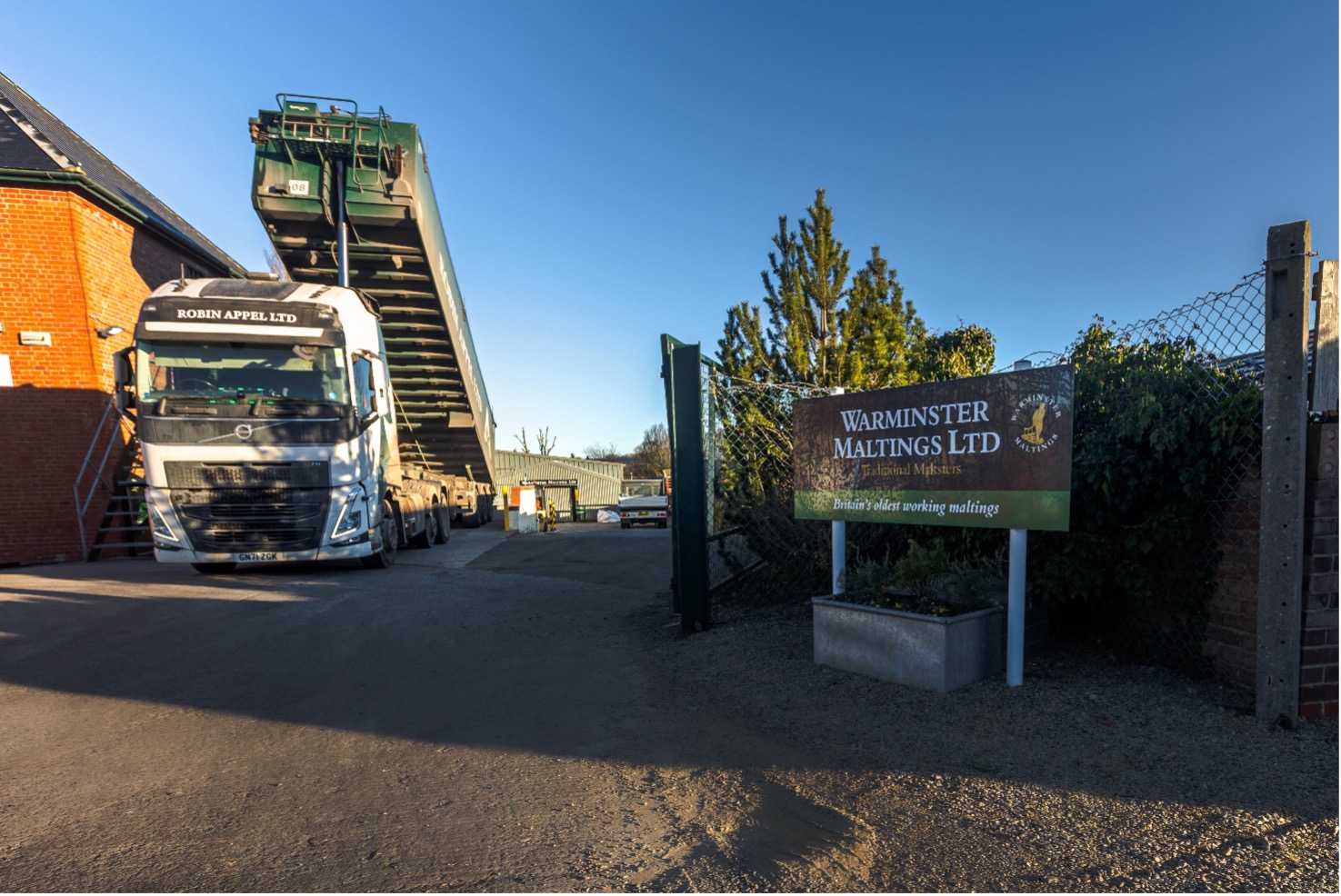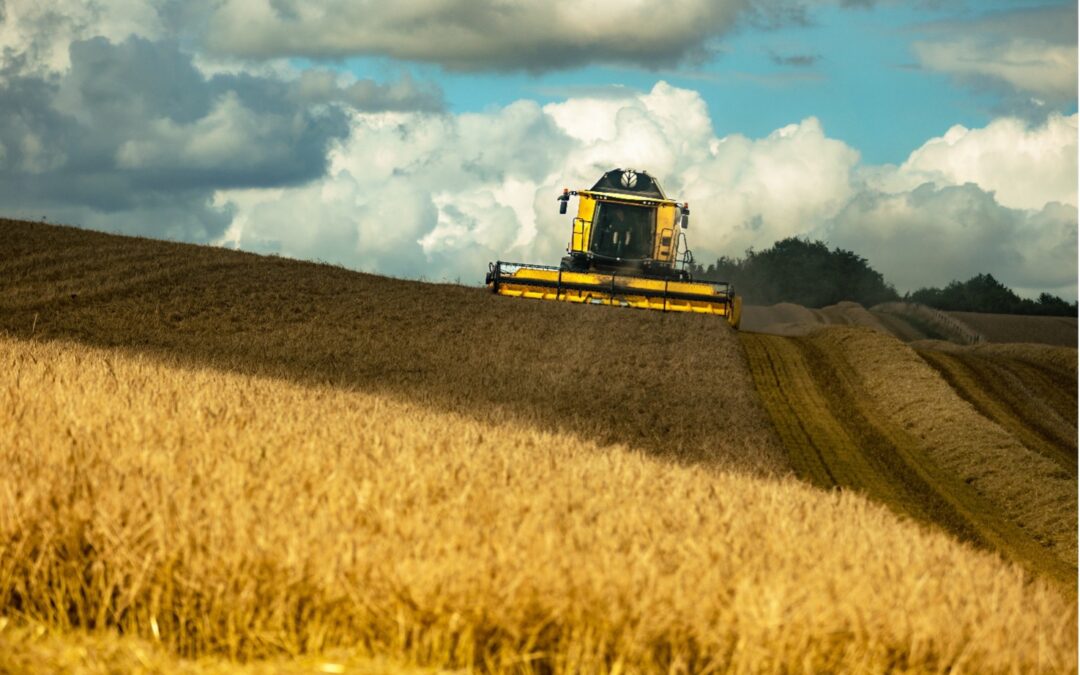
Edition 55: Friends of Warminster Maltings

Harvest Report.
On Friday, October 25th, I was privileged to be invited to address a SIBA South West meeting, held at the Ring O’ Bells pub in Bath, and deliver a Barley Harvest Review. After all the rain we have had over the last 12 months, I suspect my audience was a little concerned. I hope I put their minds at rest.
Harvest 2024 has been hailed as the worst harvest since the 1980’s. (This probably relates to 1984, when much of the English crop was completely flattened to the ground by exceptional storms that crossed the country a couple of weeks ahead of harvest). This year’s poor performance is all about reduced yields, and an overall serious shortfall of crop, but mostly wheat.
Again, we can blame the rain, but not an individual storm, instead, continuous, almost ceaseless, precipitations.
As far as I am concerned, it started raining last October (2023), and has not stopped since, and the guys at the Met Office are now repeating as much. So, not surprisingly, plantings of Winter Barley – sown end of Sept/early Oct. – were reduced. This has not really had any major detrimental impact on the brewing industry because at the same time we saw a ‘correction’ to the demand for Maris Otter, probably the most important of the Winter Barley varieties, due to a downturn in demand for ‘Otter malt in North America.
Instead, the figures suggest that any Winter Barley not planted, was turned over to Spring Barley: Winter Barley production across England is down 700,000 tonnes in 2024 (compared to 2023),
Spring Barley up 900,000 tonnes. But this Spring outcome was a close run thing! The perfect ‘window’ for planting Spring Barley in the south of England is February 15th to March 15th. But this was never possible this year, with the persistent rainfall. Instead, for many, Spring sowing never really got going until the end of April. Luckily, May returned to more rain, and the barley crops established well despite being more than a month behind schedule. The month of June was also kind to the barley crop, short periods of sunshine (interspersed with more rain), but no heatwaves to stunt leaf and stem development.
The Winter Barleys made it to harvest almost on schedule, mid-July, but the early samples were not as bold as expected, due to lack of sun. But later harvested crops improved, to being very acceptable. Grain nitrogen content was a ‘stand out’ feature, being at the lower end of the preferred range (1.40 – 1.65%), but with much of the Winter variety Craft being even lower still, rendering it unfit for brewing.

The Spring Barleys remained lucky, the continued unsettled weather allowing for an extended growing season stretching the harvest date to the third week of August. All the wet has probably contributed to the boldness of the grain, and, again, low grain nitrogen, albeit mostly well within the preferred range (1.40 – 1.65%).
The total English barley crop in 2024 is estimated to be a little short of 5 million tonnes, Scotland has yet to be confirmed. The U.K. malting industry as a whole requires 2 million tonnes, and that, of course, includes the Scottish crop. So there is no real shortage of barley, the malting market just has to pick its way through the available crop, seeking out bold samples of the right variety, with plenty of germinative capacity, and germinative energy.
As far as Warminster Maltings customers are concerned, I was pleased to report that already “All is safely gathered in”!
More Dialogue with Barley
I took advantage of my ‘platform’ in front of a SIBA audience to briefly raise two more subjects that I felt should be of concern to brewers. I am talking about the separate impacts of “Regenerative Agriculture” and “Climate Change” on the barley crop, going forward.
Firstly, “Regenerative Agriculture”, a broad term which covers a multiplicity of ways cereal growers are trying to make their crop production more sustainable. Farmers have already been experimenting with this for 4-5 years or more, so that it is now possible for analysts to plot indicative trends. One of these is that yields of cereal crops are going down. Not dramatically, and of course, as soil fertility improves, this may level out, or even climb again. But, for the meantime, if yields decrease, prices need to increase! Brewers need to be aware of that.
My second point concerned “Climate Change”. 10-15 years ago, we were led to believe that, across the south of England, at least, this probably meant more of a Mediterranean climate. As a result, farmers started planting vineyards everywhere, and even famous French brands joined in, buying up Sussex farmland to establish their own domains. But a very recent long range weather forecast, commissioned by these winegrowers, has presented an outlook for the next 10 years, that is far from what they wanted. It has suggested that the weather pattern of 2024, of incessant rainfall, is a far more likely outlook than the sunnier climes of before. So, what would be the impact of this on cereal production?
My contention is it would not be good for wheat growing, particularly for the production of high protein wheat for bread making. On the other hand, barley production, which prefers a ‘maritime climate’, this would be far more likely to endure. In fact, it might even mean that for farmers, barley becomes the first cereal crop of choice (instead of wheat), like it used to be 60 years ago.
That could be good news for brewers!
However, I went on to insist that none of this should be taken for granted. Instead, with all this potential change, I suggested now was the time for brewers to get a lot more engaged with barley growers to protect their most valuable resource. I went on to offer my SIBA audience “A Barley Walk” next summer, when we can arrange an array of Winter and Spring barleys, on adjacent farms, for inspection and discussion. We might even try and engage barley breeders, along with the farmer growers. This, I feel, could create a most valuable dialogue for brewers going forward, which my audience appeared to be very enthusiastic to support. We will have to see what we can do!

A Charitable Contribution
Our ‘Teas in the Garden’ have long been popular events here at the Maltings but this year we decided that we’d like to do a bit more with them and so chose to donate all the funds raised to the Warminster Alzheimer’s Support Day Club.
We also held a couple of tours of the Maltings where the ‘begging bowl’ was out, and we are delighted to have raised a grand total of £1255.

Robin Appel, Pat Whitty, Rachel Fear and Judy Nash
It was fitting that Pat Whitty and Judy Nash who are the curators (and, crucially, the star bakers for the teas) met with Rachel Fear, the Community Fundraising Manager for Alzehimer’s Support, to present the money.
Warminster Town aka The Malt-Men!
Warminster Maltings are long standing sponsors of Warminster Town Football Club, and it’s a relationship we are delighted to continue with. We especially enjoy the moniker “The Malt-Men”.

The first team had a promising start with a win and three draws from the first five games. Since then, the journey has been both up and down! There have been some strong performances at home but away games have appeared more challenging, with only one point gained on the road.
Having been hit with some injuries has hardly helped but many of the games have been close.
The reserves, after a shaky beginning, are now finding their stride. The young team has moved to mid-table, playing some impressive football along the way. And while the veterans had a slower start, they celebrated their first win against Radstock last week and are currently positioned just below mid-table.
Here’s hoping it’s an upward trajectory for all from now on.

Robin Appel
& Lisa Conduit














